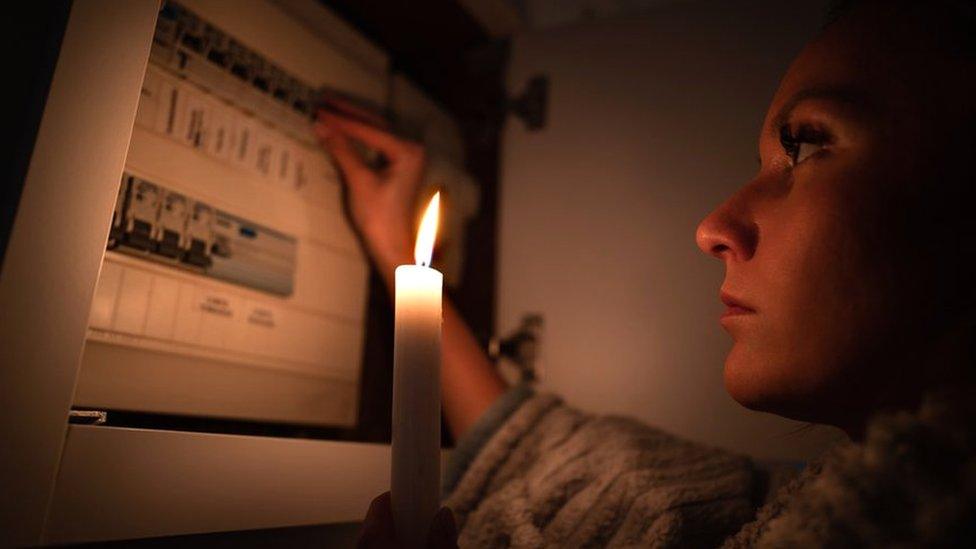Cost of living impact hit poor like Covid - health boss
- Published
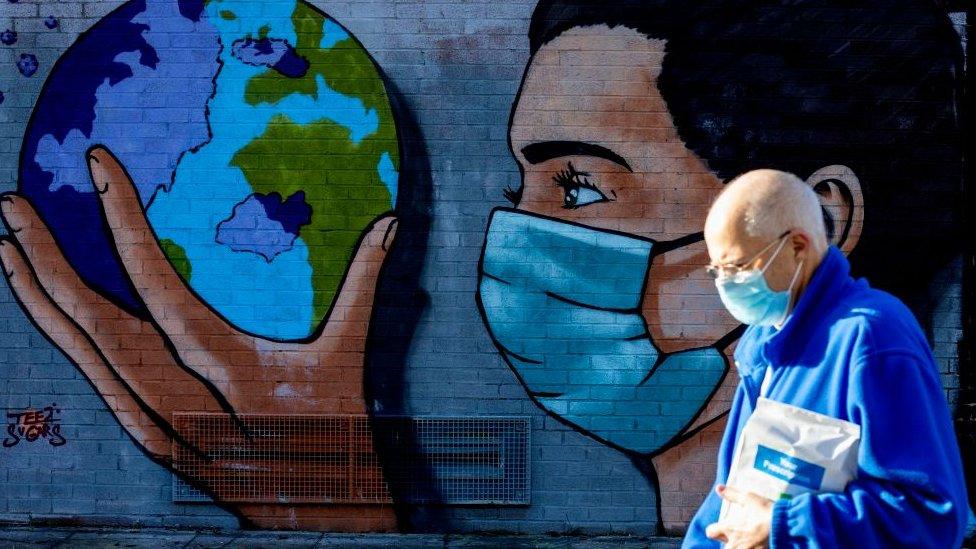
Merthyr Tydfil in January 2021, during the second wave of the pandemic
Wales is already seeing the impact of the cost of living on people's health, a public health boss has warned.
Dr Kelechi Nnoaham said conditions like diabetes can worsen when people cannot afford a healthy diet and there has already been "a significant increase" in depression and anxiety.
He said we need to "go beyond lip service" and address inequalities.
The Welsh government said it takes a government-wide, long-term approach towards tackling poverty.
"The cost of living crisis is going to do exactly what the Covid crisis did," said Dr Nnoaham, the director of public health at Cwm Taf Morgannwg health board.
"I don't think we have done enough as a society to tackle those disparities."
'Society will become more divided'
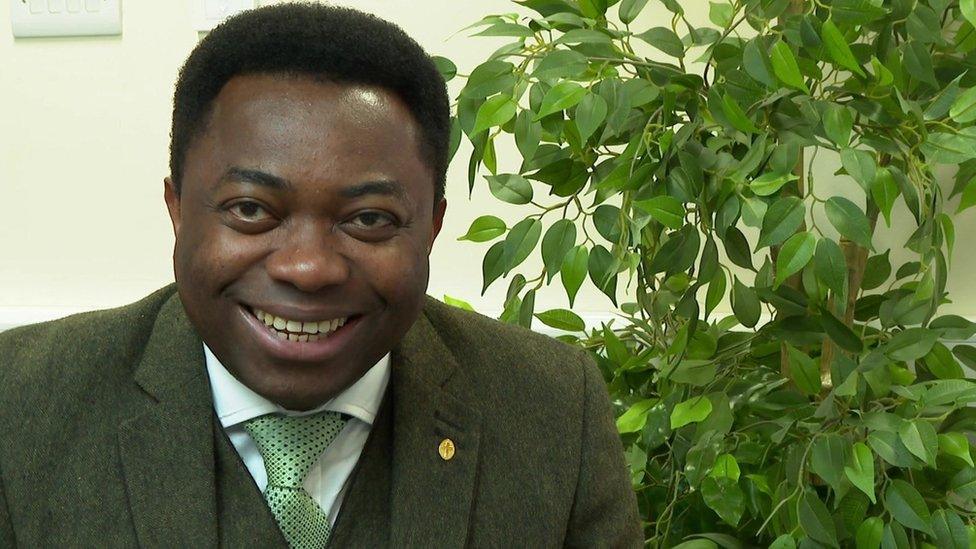
Kelechi Nnoaham, director of public health at Cwm Taf Morgannwg health board, says he fears a more divided society
Dr Nnoahm said communities need reaching out to in ways that are "genuine and not tokenistic", or "we're going to create a society that is even more divided between the rich and the poor".
"We have a fairly bumpy few years or months ahead of us," he said.
His health board covers Rhondda Cynon Taf, Bridgend and Merthyr Tydfil - areas particularly badly hit by Covid, and with large pockets of deprivation.
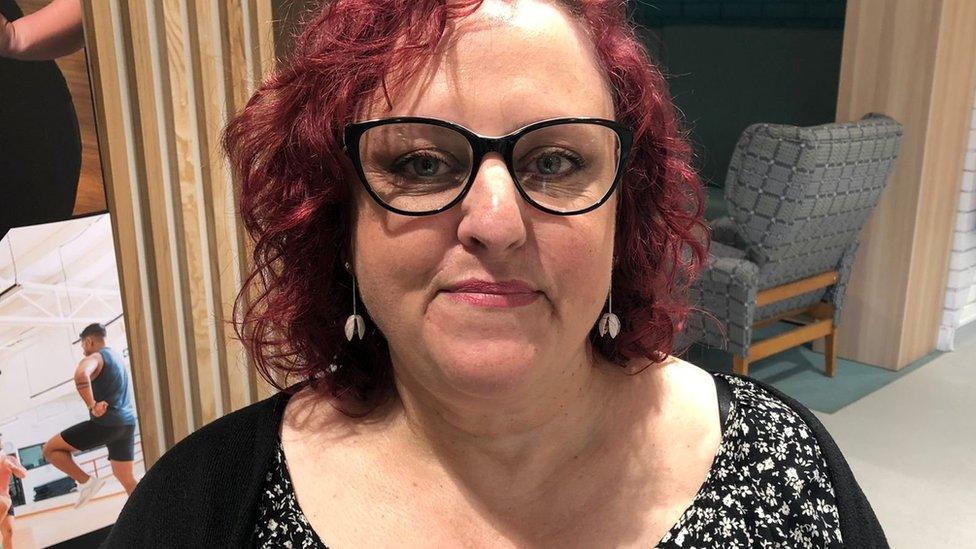
Paula Hodge runs the information hub at Cynon Linc and says cost of living related calls are increasing
Community support in the Cynon Valley
As the cost of living bites, services that support the poorest are already starting to see a spike in demand.
"As you can imagine, queries about fuel bills are now starting to come through - people who are extremely concerned about whether they should go on a fixed term, or if there are discounts they can get," said Paula Hodge, head of the information hub at Cynon Linc community centre.
The centre is home to a new GP surgery, activity sessions for the over-50s, a cafe, soft play area and other services.
Ms Hodge explained that even when government initiatives are announced, it leads to an increase in calls to their services.
"We had quite a large spike when the £150 was being claimed via the council," she said, referring to the rebate the UK government made available to those in council tax bands A to D earlier this year.
"It's not always a straightforward process and some people struggle with the telephone, let alone online.
"We're a solutions-based organisation - we could dwell on all the negatives, but actually we need to solve them. We can't solve everything, but I can guarantee we'll try."
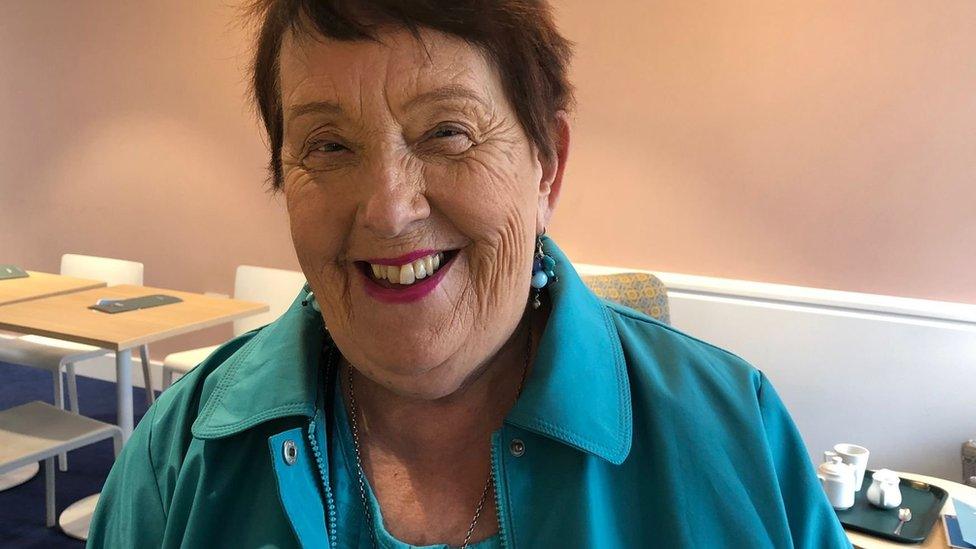
Lynda Stokes has taken action to manage her bills and reduce waste, as costs go up
'Just about cope'
Lynda Stokes, 79, regularly attends the tai chi sessions at the centre and said rising costs have made her more careful.
"I don't over-buy and I use up what I've got," she said, adding that she contacted her gas provider to agree an amount she could afford.
"I pay £150 a month, which I can just about cope with."
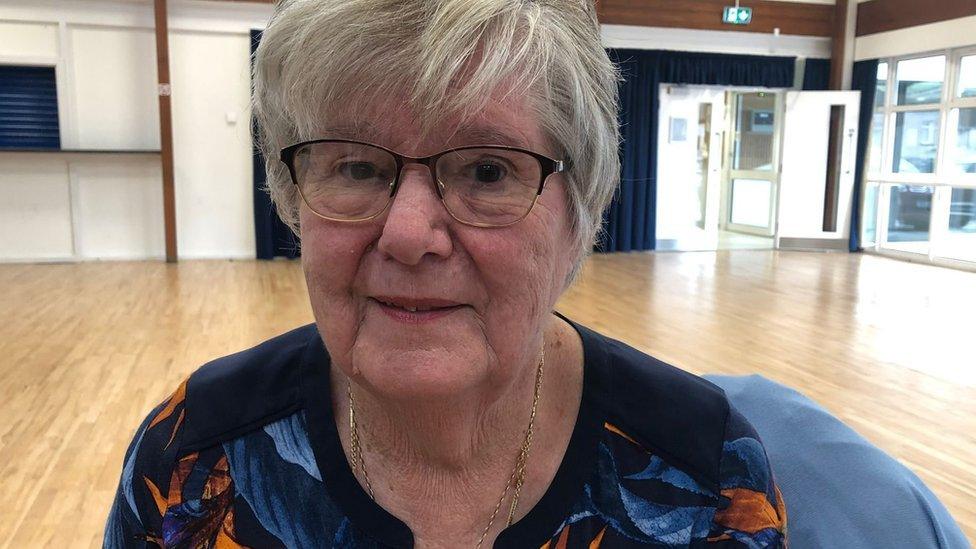
Elaine Parker says activity sessions at Cynon Linc have been a lifeline
Elaine Parker, 84, who uses her car to get to the exercise sessions and see friends at the centre, said: "I know petrol prices are coming down at the moment, but if it goes up any more it limits what you can do.
"I'm really, really worried about not being able to heat my house enough to keep myself warm."
Both said the services available at Cynon Linc were invaluable.
"It's absolutely brilliant," said Mrs Parker. "It's a lifeline for a lot of older people because we're socialising again."
'Rapport'
Ruth Bridge, the "ageing well" manager for Age Connects Morgannwg charity, which is based at the centre, explained that offering nail cutting services on site also reduces demands on emergency health services.
"Having your nails cut on a regular basis means you're less likely to catch them in rugs or bedding - preventing you from any sorts of falls," she said, adding that rheumatism and poor mobility can impede a person's ability to look after their own nails.
"It's not just the fact they have had their nails done that day. They have got out the house. They've built a rapport with the nail technicians - and that confidence means that they can sometimes divulge any other worries and we can signpost them effectively."
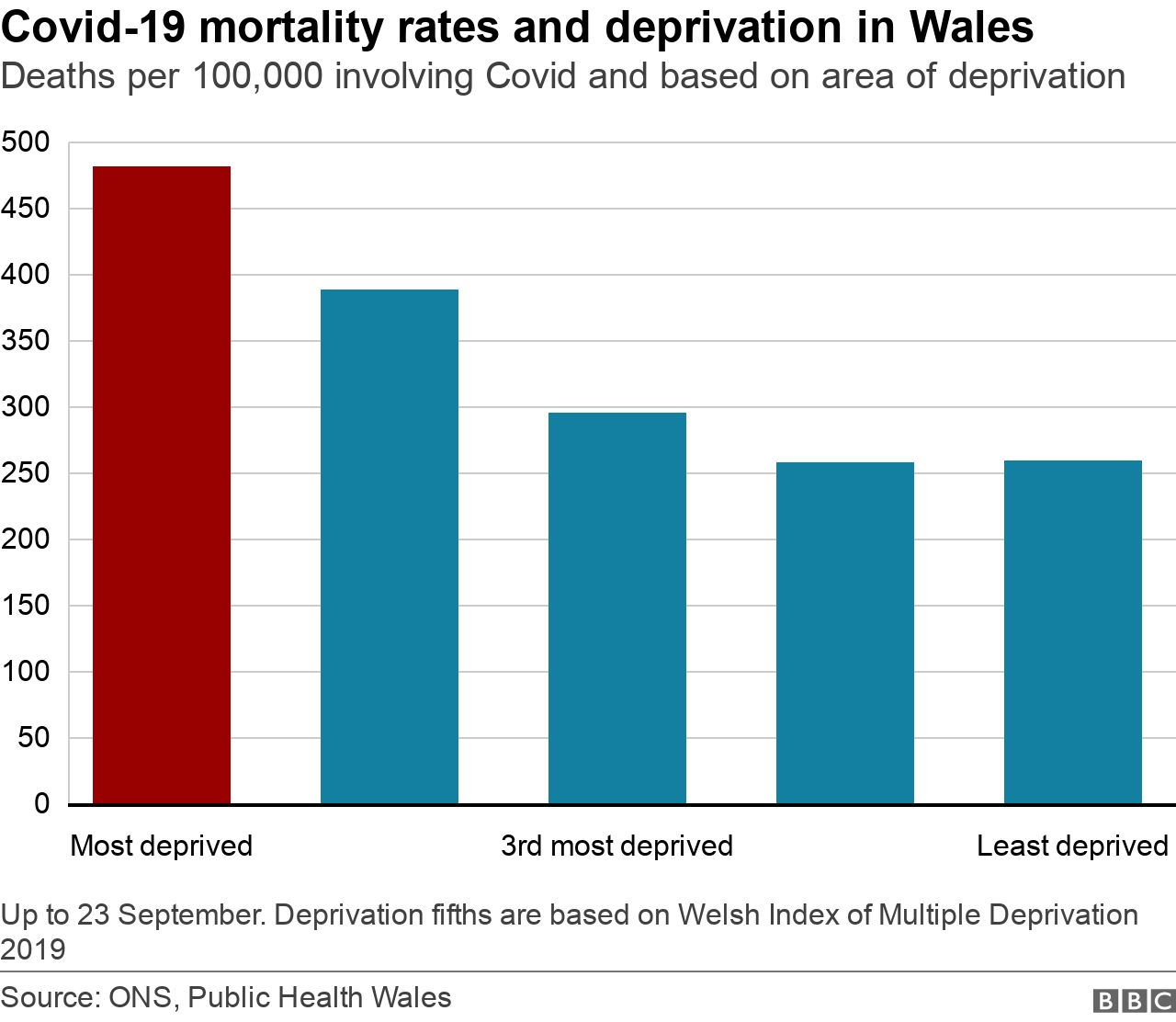
How has Covid already hit the poorer parts of Wales?
Rhondda Cynon Taf has the highest mortality rate involving Covid in Wales - and along with Merthyr Tydfil and Bridgend, the three counties have been consistently in the highest 20 mortality rates across England and Wales
Up until the end of September, more than 2,000 deaths occurred where Covid was a factor across the three counties
In the first 30 months of the pandemic, there were 1,743 deaths due to Covid across the Cwm Taf Morgannwg health board area (this is where Covid was the underlying cause of death not just playing a part). The area's mortality rate is 20% higher than the Welsh average for the pandemic, up to the end of August
A third of people being referred for "long Covid" symptoms in Wales are from the Cwm Taf Morgannwg area
We have also seen that those people living in poorer parts of Wales are much more likely to have died of Covid. When we look at deaths involving Covid by area of deprivation - the mortality rate is nearly twice as high for people in the most deprived parts of Wales compared to the least deprived area.
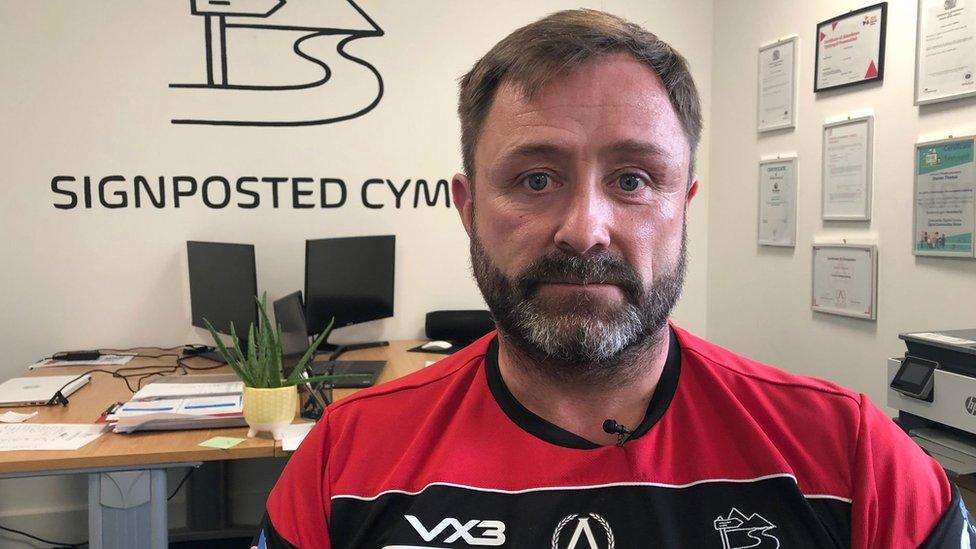
Darren Thomas set up a mental health charity a year ago and says there's been a large rise in referrals for help
Darren Thomas set up a mental health charity, Signposted Cymru, a year ago, following his own recovery from a mental health crisis.
"We've had an increase of 500% in the people walking through the door in the last four months," he said.
"We were paying about £1,000 a month to counsellors, we're now paying £6,000 a month and I think that's going to go up again this month because of the volume of people coming in.
"People are struggling with anxiety and depression at the moment. Every day they're watching on TV that fuel prices are going up, food is going up, but their wages are not - they're at their wits' end."
Dr Nnoaham said the health service in Wales was not immune to rising costs either.
The health minister recently acknowledged the NHS in Wales was facing an unforeseen rise in costs of £206m.
"Don't forget, the health system is facing its own cost of living challenge - you might call it the 'cost of operating challenge'," said Dr Nnoaham.
"We have to keep the lights on when there are already deficits."
He added that staff were not shielded from these financial pressures, with some health services setting up foodbanks and loan systems to support them.
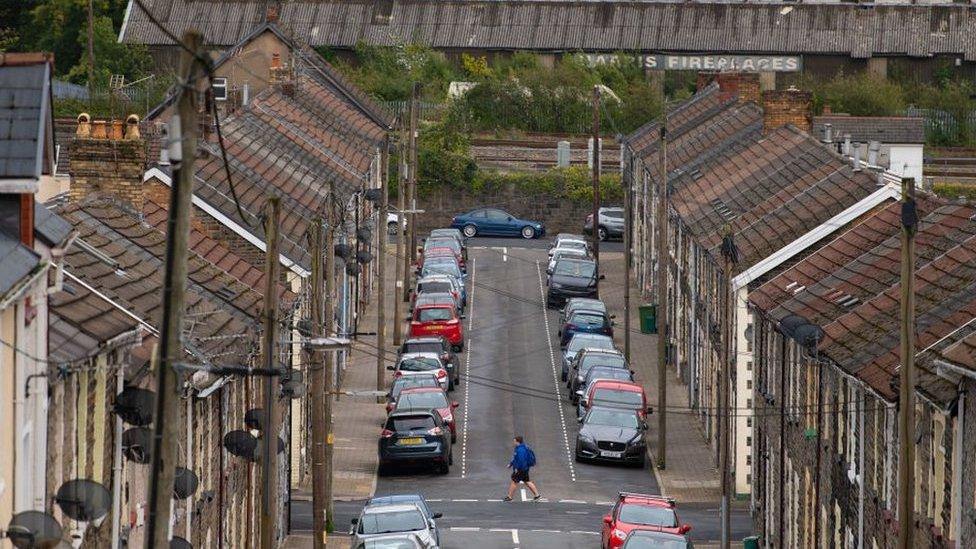
The Welsh government says it will do all it can to tackle inequalities
What's the Welsh government response?
The Welsh government said it recognised the importance of tackling poverty and inequality and that its response was government-wide and long-term.
A spokesperson added: "This year alone we are spending more than £1.6bn on schemes that target the cost-of-living crisis and on programmes that put money back in people's pockets. But the key levers for tackling poverty - powers over the tax and welfare system - sit with the UK government.
"We will continue to all we can with the powers we have to tackle inequalities and improve outcomes for everyone in Wales."

FIGHT FOR YOUR RIGHTS: The Welsh consumer show fighting for YOUR rights

- Published21 December 2022

- Published2 October 2022
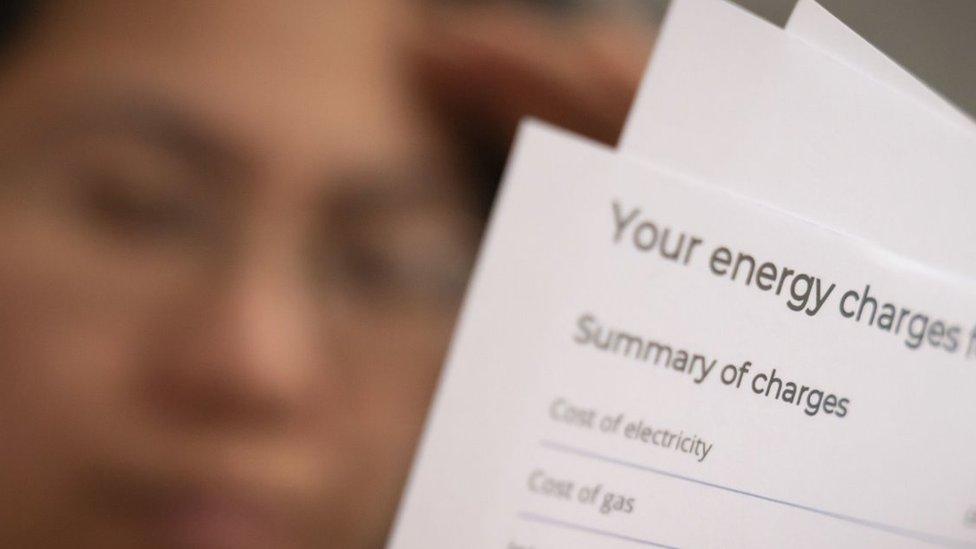
- Published7 October 2022
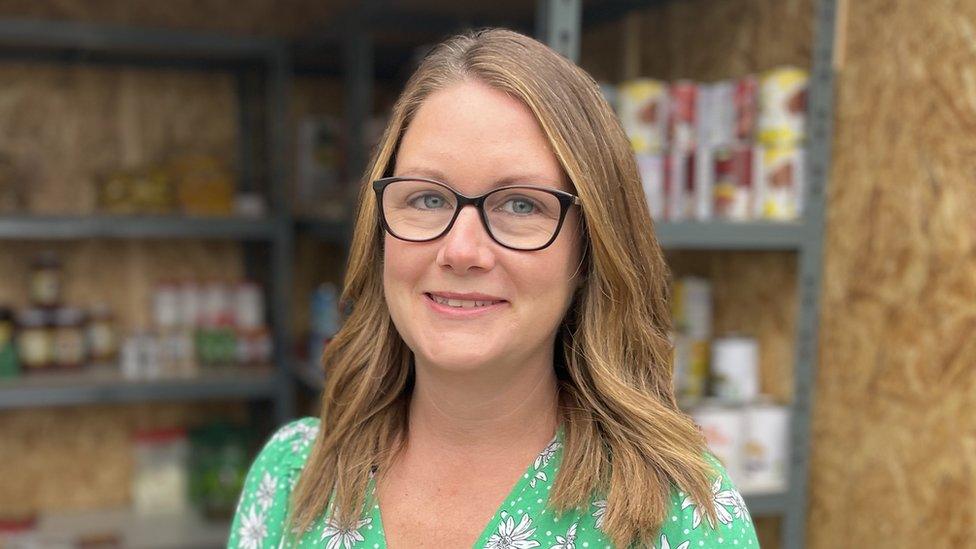
- Published23 November 2023

- Published7 October 2022
